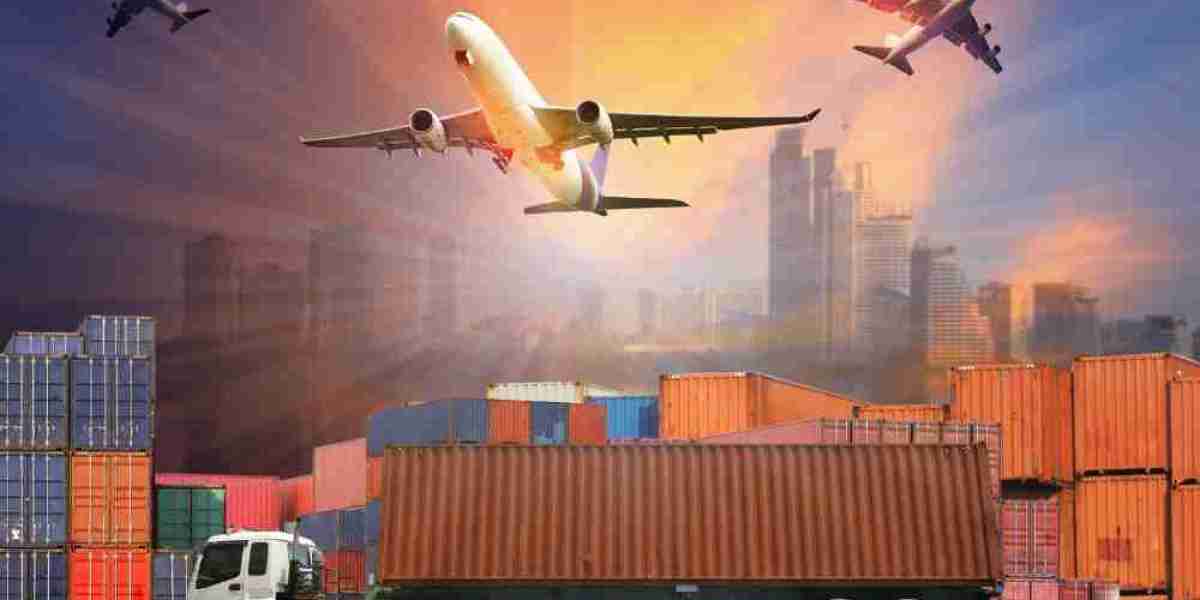The logistics industry is undergoing a major transformation — and Artificial Intelligence (AI) is leading the charge. What was once a sector defined by manual processes, physical paperwork, and slow response times is now being reshaped by intelligent systems that can predict, automate, and optimize nearly every aspect of the supply chain.
Whether it’s improving delivery speed, reducing operational costs, or enhancing customer experiences, AI is bringing unprecedented efficiency and agility to modern logistics.
In this article, we’ll explore how AI is transforming logistics, the key technologies driving the change, and how your business can benefit from adopting AI-powered solutions.
Why AI Matters in Logistics
Logistics has always been a complex industry — involving countless variables like routes, weather, inventory levels, traffic, fuel costs, and customer expectations. Traditional systems often struggle to keep up with this level of complexity.
This is where AI comes in.
AI algorithms can analyze huge amounts of data in real time, identify patterns, make predictions, and automate decision-making — all far faster and more accurately than humans. The result? Smarter, faster, and more cost-efficient logistics operations.
Key Areas Where AI Is Transforming Logistics
1. Predictive Analytics for Demand and Inventory Planning
One of the biggest challenges in logistics is forecasting demand and managing inventory levels. Overstocks lead to waste, while stockouts lead to missed sales and unhappy customers.
AI-powered predictive analytics helps businesses:
Forecast demand more accurately
Plan inventory levels by season, region, or product
Optimize warehouse storage space
Avoid costly disruptions due to under- or over-supply
By analyzing historical sales data, market trends, and even weather patterns, AI allows companies to maintain the perfect balance of stock — and stay one step ahead of demand.
2. Route Optimization and Dynamic Scheduling
AI is revolutionizing transportation and delivery management by improving how routes are planned and schedules are managed.
AI-based systems can:
Analyze traffic, weather, and road conditions in real time
Adjust delivery routes on the fly
Minimize fuel consumption and delivery delays
Increase driver efficiency and reduce idle time
This is especially important in last-mile delivery, where delays and inefficiencies are most common.
With AI, logistics companies can achieve faster deliveries, lower transportation costs, and improved customer satisfaction — all at the same time.
3. Warehouse Automation and Robotics
Warehouses are becoming smarter and more efficient with the integration of AI-powered robotics and automation tools.
Some examples include:
Autonomous mobile robots (AMRs) that move inventory around the warehouse
AI-driven picking and packing systems that speed up fulfillment
Computer vision systems for automated inventory counting and damage detection
AI-powered warehouse management systems (WMS) that optimize storage layouts and workflows
These technologies reduce labor costs, improve accuracy, and increase throughput — especially during peak seasons when demand surges.
4. AI in Freight Matching and Load Optimization
Traditionally, matching the right shipment with the right carrier has been a manual and time-consuming task.
Now, AI algorithms can automatically:
Match loads with available carriers based on location, capacity, and route
Optimize truckloads to reduce empty miles
Minimize freight costs while maximizing resource utilization
Suggest better pricing based on market trends and capacity
This not only improves efficiency but also helps reduce carbon emissions by cutting down on unnecessary trips.
5. Real-Time Tracking and Visibility
AI enables real-time shipment visibility, which is becoming an industry standard. Customers now expect to know where their package is at every stage — and AI helps make that possible.
By combining GPS data, IoT sensors, and machine learning, logistics platforms can:
Provide live tracking updates
Predict estimated delivery times
Detect delays or anomalies in transit
Alert both customers and shippers to potential issues
This transparency builds trust and allows for proactive communication with customers.
6. Customer Service and Chatbots
AI is also transforming the way logistics companies interact with customers.
AI-powered chatbots and virtual assistants can:
Handle common customer queries about shipping, tracking, or returns
Provide 24/7 customer support
Reduce the workload on human agents
Improve response times and satisfaction
This allows companies to deliver faster, more efficient support — while freeing up teams to focus on more complex issues.
Real-World Example: How AI Enhances Business Logistics
Let’s say you're an e-commerce brand distributing products across India.
Before AI, your operations might rely on fixed routes, manual inventory counts, and customer support teams handling every inquiry.
With AI:
Your system forecasts which products will be in high demand next month
Autonomous software plans dynamic delivery routes daily, reducing delivery times by 30%
Your warehouse robots pick, pack, and label orders with minimal human input
Customers receive real-time tracking updates via AI-powered systems
A chatbot handles most of the customer questions instantly
The result? Lower costs, faster deliveries, and happier customers.
Challenges in AI Adoption
While AI has huge potential, it’s not without challenges:
High implementation costs for small businesses
Integration issues with existing legacy systems
Data quality is critical — inaccurate or incomplete data can lead to poor decisions
Need for skilled staff to manage and maintain AI systems
However, with the increasing availability of AI-powered logistics platforms and third-party logistics providers (3PLs) offering these tools as a service, these barriers are becoming easier to overcome.
Scanwell Logistics: Embracing AI for Smarter Logistics
As a forward-thinking logistics company in Mumbai, Scanwell Logistics understands the importance of staying ahead in a fast-moving industry.
We use intelligent logistics systems that incorporate AI for:
Route and load optimization
Warehouse efficiency
Shipment tracking and customer communication
Demand forecasting and fulfillment planning
Whether you're a growing e-commerce brand or an established global distributor, we help your logistics operations scale smarter, faster, and more efficiently — using the power of technology.
Final Thoughts
AI is not just a buzzword — it’s a transformative force reshaping how logistics works. From smarter warehousing and faster shipping to predictive planning and customer engagement, AI is helping companies across industries unlock new levels of performance.
Businesses that adopt AI in their logistics operations will not only reduce costs and errors but also build stronger, more responsive supply chains that can handle future challenges.






